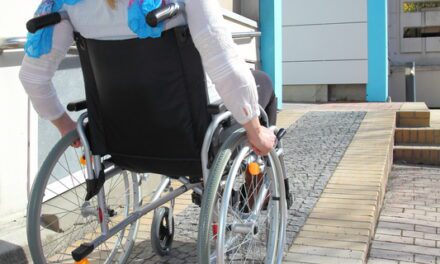The Association for Driver Rehabilitation Specialists (ADED) places an emphasis on safe older adult driving in recognition of the upcoming Older Americans Month in May. ADED states that it represents driver rehabilitation professionals who are qualified to assist older adults, offering driver evaluation, counseling, training, and remediation.
In spite of driving experience, ADED points out that older adults may experience age-related declines in sensory, cognitive, and physical functions, that can result in driving impairments. Whether these impairments are age-related, due to disease, illness or disability, all can impact older adults by making them less safe drivers and more vulnerable to injury or death in a crash.
According to ADED, while many older adults are safe drivers and hold good driving records, a portion of the population with varying levels of impairments continue to drive. To maintain the freedom of travel, appropriate evaluation, training, and equipment can help an older adult keep their independence, ADED says.
“ADED takes very seriously the role of our members in keeping the roadways safe for everyone. To ADED, ‘rehabilitation’ means taking a proactive approach to helping older adults maintain optimal driving skills behind the wheel, or providing alternative transportation and mobility resources if an impairment means driving retirement,” Elizabeth Green, OTR/L, CDRS, ADED executive director, says.
To this end, ADED notes that it and its member-professionals aim to be specially attuned to the needs of older drivers. This reflects ADED’s mission to promote safe, independent community mobility for those at greater risk for sensory, cognitive, and physical impairments or medical-related issues, including older adults and individuals with disabilities.
ADED represents driver rehabilitation specialists (DRS) and certified driver rehabilitation specialists (CDRS). To determine an older adult’s ability to drive, particularly if the driver has exhibited any physical, sensory, or cognitive impairment, is medically at risk, or has been in a motor accident while driving, ADED recommends a driver evaluation conducted by a DRS or CDRS.
Referrals to a driver rehabilitation program, DRS, or CDRS can be made by family physicians, medical specialists like gerontologists, eye care professionals, and occupational therapists, and driving schools among others. Family members of older adults may also initiate contact, ADED adds.
ADED is a non-profit organization comprised of members dedicated to promoting safe, independent mobility for individuals with disabilities and the aging.
To locate a DRS, CDRS, or local evaluation center, contact ADED at [email protected]
Source: ADED





